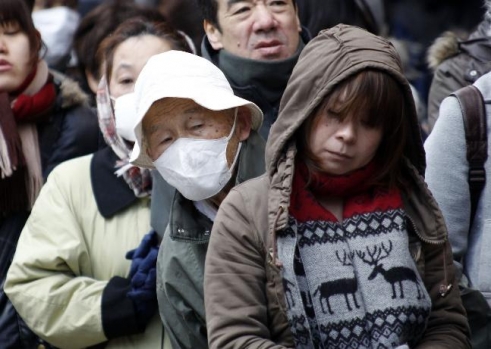By Rosaleen Cunningham
Almost two weeks after the earthquake and subsequent tsunami that devastated the east coast of Japan on Friday 11 March, it is becoming clear just how badly older people were affected.
The estimated death toll from the disaster is currently 15,000. It is not yet clear how many of those were older people but given that almost 30% of Japan’s population are over 60, the figure will be significant.
The oldest old are most at risk
Many older people have been participating in relief efforts and are trying to locate their own elderly relatives. But it is the oldest old who are most at risk.
Hypothermia, dehydration and respiratory diseases are still a risk among older people in temporary shelters. Many lost their medication when the earthquake and wave struck. There is still concern for the older survivors, some of whom in more remote areas are still without basics such as medicines, food and fuel.
The international media has reported over the last few days dire situations in the immediate aftermath of the disaster in hospitals and residential homes, as heating fuel and medicine ran out.
Recovery process is well underway
But Japan is a wealthy, developed country with impressive disaster preparedness and response capacity.
Although the scale and severity of the disaster was initially overwhelming, a recovery process is already well underway.
Though HelpAge International and its partners are not currently launching a large scale humanitarian response, we are providing some financial support to YMCA in Japan, who are responding on the ground.
Longer-term needs being identified
Godfred Paul, Emergency Programme Manager for HelpAge in the East Asia and Pacific region says: “The YMCA in Tochigi has a well established service for older people with specialists in the team.
“They are currently working through their staff and volunteers to reach as many older people as possible in the area affected by the earthquake. They are focussing on identifying the long-term needs of rehabilitating older people, while also responding to the most urgent needs.
“Tochigi YMCA hopes to expand their services to many more older people to assist them with recovery. The YMCAs in Sendai and Marioka (devastated by the tsunami) are also working with volunteers to visit as many older people as possible to carry out individual assessments.
“Some of the more longer-term issues they have already identified are providing older people with psycho-social support, hospice care and residential care (for those who have lost their family members and are left alone).”
HelpAge has been working with the YMCA Alliance in South East Asia for two years, mainly providing training and advice on caring for older people and in introducing concepts such as home-based care into their programmes.
Older people should be included in the recovery effort
HelpAge works internationally to ensure that older people are included in all humanitarian responses. We will share this expertise in the coming months with agencies such as the YMCA working on the ground in Japan.
Our new shelter guidelines include practical suggestions on how to ensure older people are considered in emergency housing programmes.
These have been developed in collaboration with the International Federation of the Red Cross.
